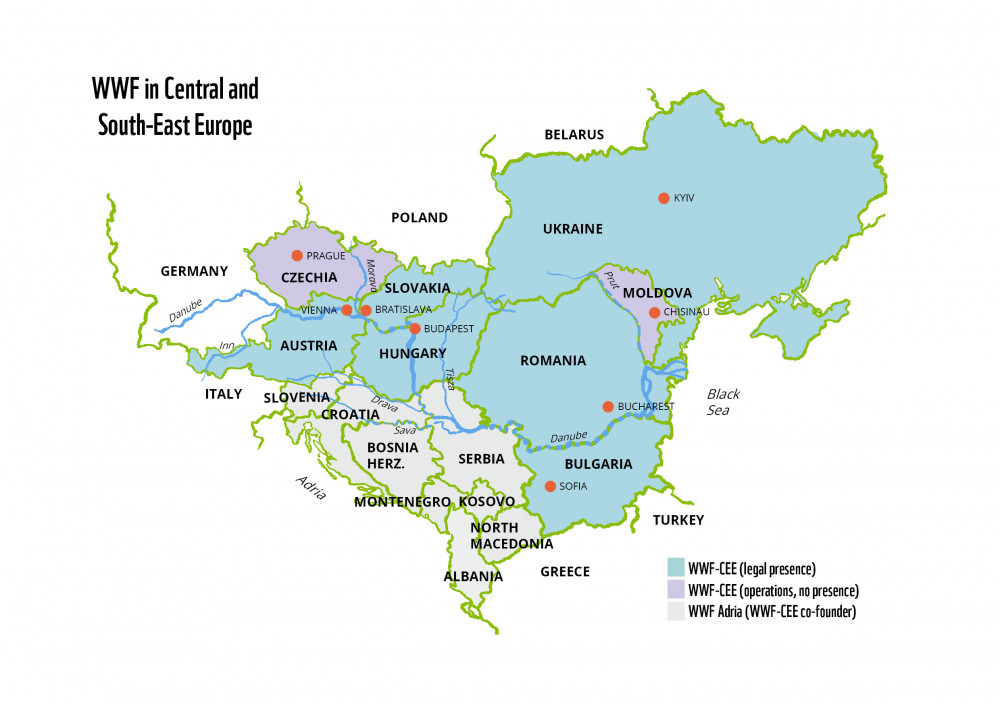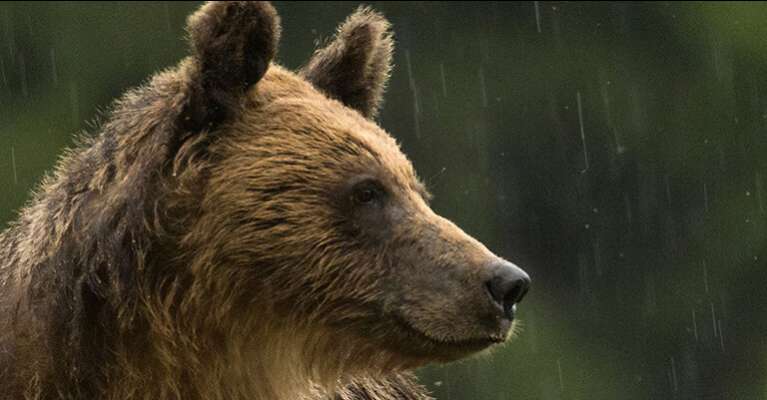The war in Ukraine has caused immense human suffering and destruction to infrastructure as well as to the natural environment, with long-term implications for the Ukrainian people and economy. More than 6 million people have no or limited access to clean water, and over 280,000 hectares of forests have been destroyed or felled.
While the end of the war is still unknown, it is clear that Ukraine will need the largest reconstruction plan in Europe since World War II.
“Ukraine: a sustainable economic recovery for people and nature” is a joint report, written and produced by WWF Central and Eastern Europe and WWF-Ukraine together with the Boston Consulting Group (BCG). It makes the case why post-war reconstruction of Ukraine must be climate- and nature-positive, and provides recommendations on how this can be done to support the people and government of Ukraine.
20 March 2022:
WWF-CEE is appalled by the escalating Russian aggression in Ukraine, which violates both the United Nations Charter and international humanitarian law. We condemn the alarming measures, extreme violence, destruction and the attacks against civilians in Ukraine. Our hearts and thoughts are with everyone who is affected by this war, especially the people of Ukraine who are suffering and all those in the impacted regions.
The catastrophic humanitarian crisis is deepening rapidly and an environmental crisis looms larger with every day that the war continues across Ukraine and the region. We stand together with our colleagues, those affected and everyone around the world that is hoping for a peaceful resolution. Peace among people is the foundation of building a future in which people and nature thrive.
We are trying to keep contact with and provide any assistance we can to our Ukrainian colleagues, several of whom remain in Kyiv, while others are in the Western part of the country or abroad.
We are working for a world in which people live in harmony with nature - around the world, and in Central and Eastern Europe. But this is only possible if there is peace between humans.
We express our deepest sympathy, solidarity, and support to our colleagues and their families and to our friends. Our thoughts are with you!
Andreas Beckmann, CEO, WWF Central and Eastern Europe
The WWF-CEE Team
WHO WE ARE
THE BIG PICTURE
- We are facing an existential crisis - worldwide and in our region, driven by climate change and biodiversity loss.
- The impacts of these interrelated crises are already affecting communities, businesses and society as a whole, and increasing the already existing instability of our political, economic and social systems.
- Science tells us the time is limited where we still can change our path and avoid the most catastrophic consequences.
CENTRAL AND EASTERN EUROPE …
- contains many of Europe’s greatest natural values, including primary and old growth forests, wetlands and free-flowing rivers as well as areas of wilderness.
- is home to healthy populations of brown bears, wolves and lynx, and the most important remaining refuges in Europe for the globally threatened sturgeon.
- has a rich diversity of languages, cultures and ethnicities.
Despite this rich heritage, the countries of Central and Southeastern Europe are more challenged than their neighbours to the North and West. They have to endure less stable economies, fluctuating governance and struggling civil society and media. While our countries benefit from membership or proximity to the European Union, they nevertheless face environmental problems not dissimilar to those of the global South and East.
OUR PURPOSE
We are here to save the globally important forests, rivers, wetlands and species in the “Green Heart of Europe”.
OUR MISSION
The “Green Heart of Europe” is saved and people live in harmony with nature.
WWF CENTRAL AND EASTERN EUROPE (WWF-CEE)
As the first multi-country, self-governing member of the global WWF network, WWF-CEE is pioneering a model for empowering and embedding WWF in smaller countries and markets. It is active in seven countries of Central and South-Eastern Europe, including legal entities in five countries (WWF-Romania, WWF-Hungary, WWF-Bulgaria, WWF-Slovakia and WWF-Ukraine) and an Austrian-registered association serving as Secretariat. It also manages WWF activities via consultancies and partner organisations in the Czech Republic and Moldova.
WWF-CEE provides overall leadership and coordination of WWF’s commitment in the Danube and Carpathian eco-regions, including engagement with the EU Strategy for the Danube Region (EUSDR), the International Commission for the Protection of the Danube River (ICPDR) and the Convention for the Protection and Sustainable Development of the Carpathian Mountains (Carpathian Convention). 




